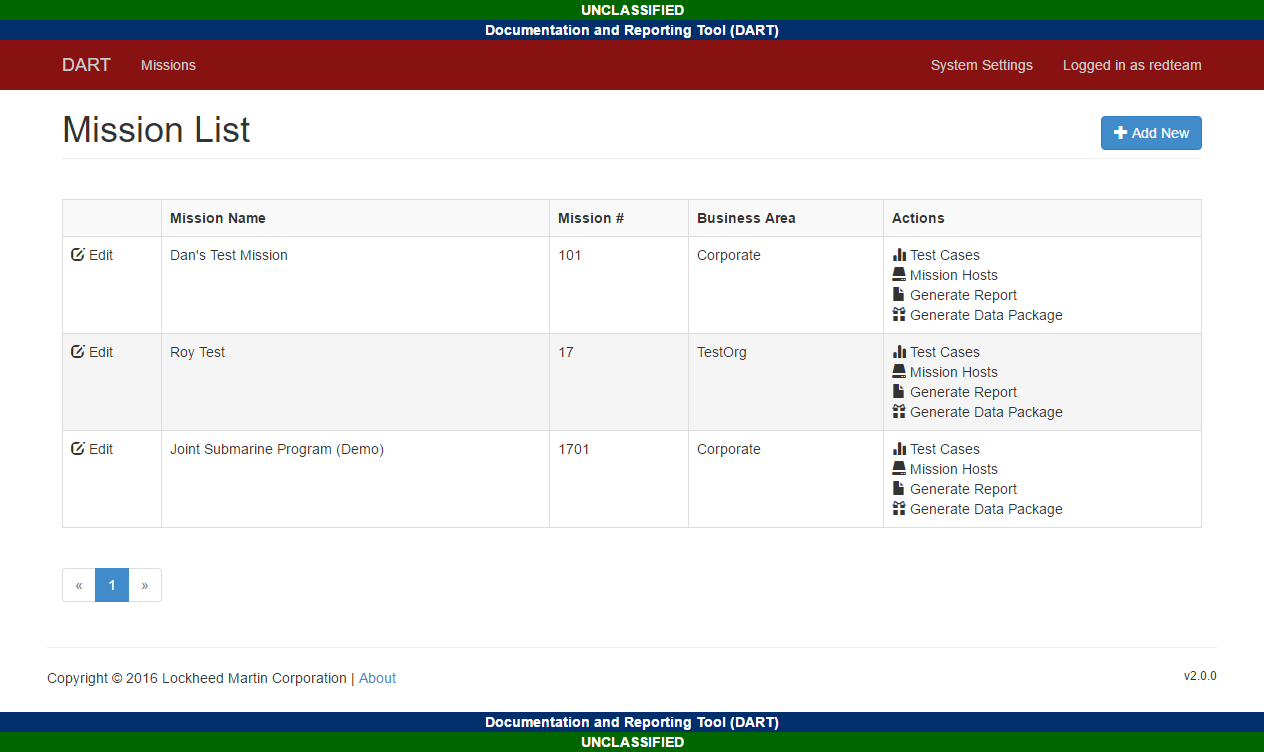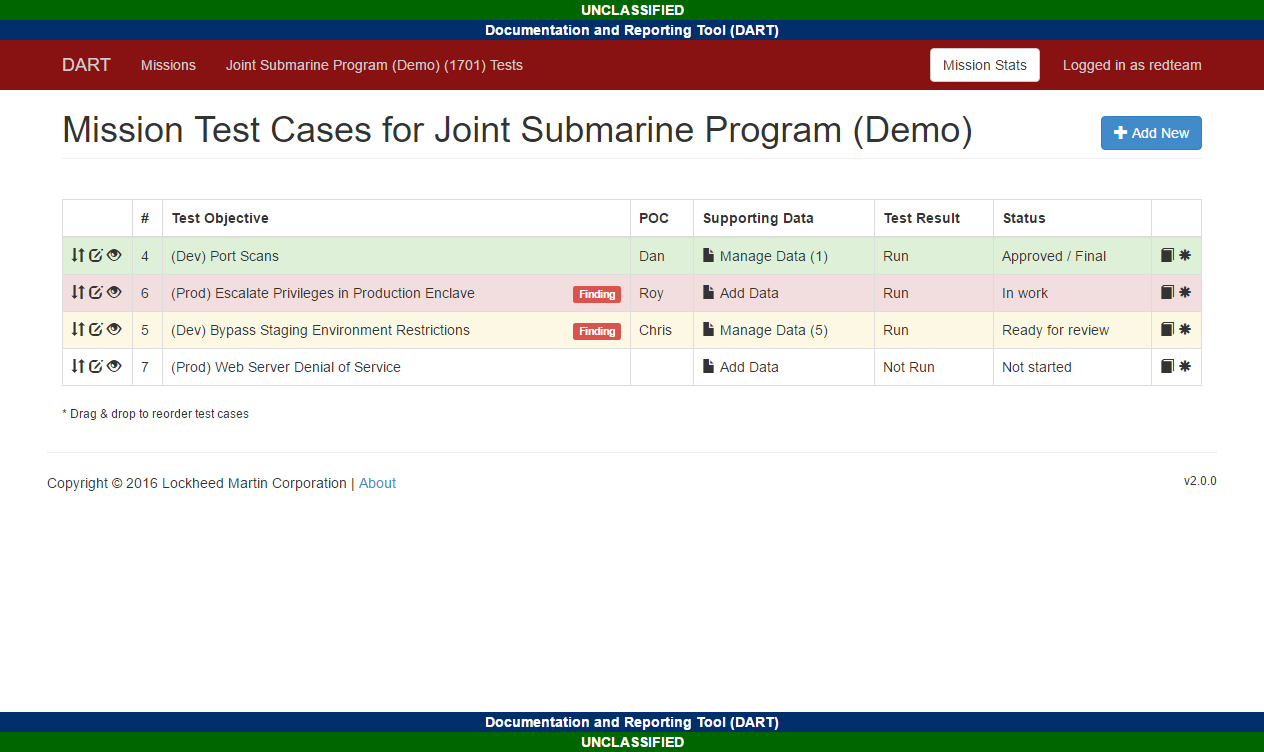DART is a test documentation tool created by the Lockheed Martin Red Team to document and report on penetration tests, especially in isolated network environments.
The goals of this tool are:
- Easy
- Quick to set up without internet connectivity
- No extensive configuration required
- Enabling
- Maximize testing time; minimize reporting time
- Apply NISPOM-friendly portion markings
- Capture test artifacts
- Expendable
- You won't lose sleep over leaving the tool behind to be destroyed
- The report and artifacts files contain everything needed from the test
DART is intended to be executed in isolated, uncontested environments such as an isolan, private test network, or on a standalone machine. It is not intended for deployment on untrusted networks.
DART is tested to work in the following configurations:
- Windows
- Linux
- Mac
- Docker
Other configurations will likely be successful, however we do not currently test DART's operation in these configurations.
- Since this is a tool intended to be used by a team during an active and organic penetration test with many moving parts, we typically just use a single-mission username and password that the execution team knows. RBAC is not implemented in this tool today.
- Multiple people editing test case details / mission details will likely result in data loss. The last person to save a details page wins and only their edits will be persisted. To help avoid this problem, see the question below.
- As soon as you begin working on a test case, change the status to "In Work" and Save. This will prompt others if they click on a test case you're currently working in so they know to check to see if the case has been saved. We usually use the POC field to know who to ask if they're still working the test case.
- Dependencies required by this tool may contain Export Controlled Information. Prior to building this tool outside the U.S. you should review the dependencies for any export compliance issues. Additionally, upon entering data into this tool the database file, supporting documentation folder, and outputs should be treated as sensitive, and handled as export controlled / classified information, as appropriate.
© 2024 Lockheed Martin Corporation


